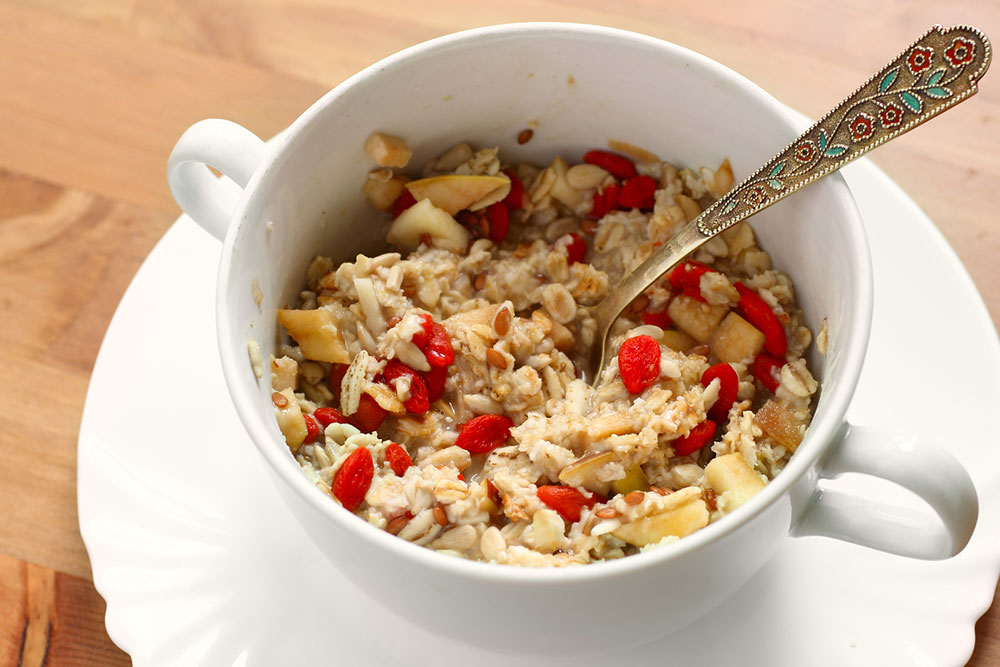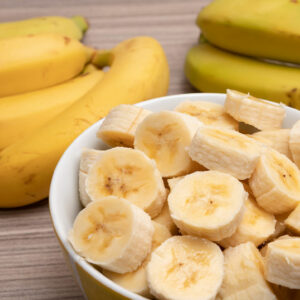10 nutritious breakfast ideas for high blood sugar

Breakfast is often considered the most important meal of the day, and for individuals with high blood sugar levels, it becomes crucial to make wise food choices. A balanced breakfast can aid in the stabilization of blood sugar levels. This means one can manage blood sugar levels effectively by incorporating the right foods into the morning routine. Hence, here are some delicious breakfast ideas that can help control high blood sugar levels.
1. Oatmeal with berries and nuts
Oatmeal is a high-fiber, whole-grain cereal that provides a slow energy release, preventing blood sugar spikes. Plus, berries, such as blueberries and strawberries, are abundant in antioxidants and fiber, which aid in stabilizing blood sugar. Additionally, nuts like almonds or walnuts add healthy fats, protein, and fiber, further controlling blood sugar.
The fiber in oatmeal slows down digestion, reducing the rate at which sugar enters the bloodstream. Berries have a low glycemic index, which means they don’t cause a rapid spike in blood sugar levels. Then, nuts provide healthy fats that promote insulin sensitivity, helping the cells better regulate blood sugar.
2. Greek yogurt with cinnamon and chia seeds
Greek yogurt is a great protein source that helps maintain steady blood sugar levels. Additionally, cinnamon has proven to improve insulin sensitivity, making glucose absorption easier for cells. Lastly, chia seeds are rich in fiber and healthy omega-3 fatty acids.
This means, on the one hand, protein-rich Greek yogurt stabilizes blood sugar by slowing the absorption of carbohydrates. On the other, cinnamon assists in improving insulin function, reducing the risk of insulin resistance. Besides this, the fiber in chia seeds further aids in slowing the absorption of sugar, promoting better blood sugar control.
3. Scrambled eggs with spinach and tomatoes
Eggs are rich in protein and essential nutrients. Spinach is low in calories and carbohydrates while being rich in fiber and antioxidants. Plus, tomatoes provide vitamins and lycopene, which have been associated with improved insulin sensitivity.
So, the protein from eggs helps stabilize blood sugar levels by reducing hunger and maintaining fullness. Similarly, the fiber in spinach slows the digestion of carbohydrates and prevents rapid spikes in blood sugar. Over and above this, fresh tomatoes contribute to better insulin sensitivity and overall blood sugar control.
4. Avocado toast with whole-grain bread
Avocados are a great source of vitamins, healthy monounsaturated fats, fiber, and minerals like potassium, magnesium, and folate. Whereas whole-grain bread provides complex carbohydrates and fiber, aiding in sustained energy release.
This denotes that the healthy fats in avocados help improve insulin sensitivity and reduce inflammation. Simultaneously, whole-grain bread provides slow-digesting carbohydrates, preventing rapid blood sugar spikes. Together, they make for a satisfying and blood-sugar-friendly breakfast.
5. Cottage cheese and fruit salad
Cottage cheese is high in protein and low in carbohydrates. Likewise, fresh fruits like apples, pears, and kiwi are low in sugar and high in fiber, vitamins, and antioxidants.
The protein in cottage cheese promotes blood sugar stability by delaying digestion, and the fiber in fruit salad slows sugar absorption, making it a suitable option for people with high blood sugar levels.
6. Peanut butter and banana smoothie
Peanut butter provides proteins and healthy fats, which help regulate blood sugar. On the other hand, bananas offer natural sugars, fiber, and essential nutrients like potassium to aid bodily functions.
This is because the combination of protein and healthy fats in peanut butter helps maintain steady blood sugar levels throughout the morning. Similarly, bananas provide a natural source of energy without causing rapid spikes in blood sugar when consumed in moderation.
7. Veggie omelet
A veggie omelet made with bell peppers, onions, and mushrooms is a nutritious and low-carb breakfast option. It offers a host of essential minerals, vitamins, and antioxidants that are important for maintaining good health. Eggs, a rich source of protein and other vital nutrients, help regulate blood sugar levels, while veggies provide fiber and other essential nutrients. Therefore, a veggie omelet is ideal for those who want to keep blood sugar spikes at bay and stay full for longer.
8. Quinoa breakfast bowl
Quinoa is a protein-packed grain with a low glycemic index. Adding nuts, seeds, and berries enhances its nutritional value by providing fiber, healthy fats, and antioxidants.
Quinoa’s low glycemic index means it has a minimal impact on blood sugar levels. The fiber, healthy fats, and antioxidants from nuts, seeds, and berries further support blood sugar control and overall health.
9. Smoked salmon and cream cheese on whole-grain toast
Smoked salmon is abundant in omega-3 fatty acids and protein, while whole-grain toast provides complex carbohydrates and fiber. Then, if needed, one can add cream cheese for a dash of flavor and creaminess.
The protein and healthy fats in smoked salmon help regulate blood sugar levels and promote satiety. Then, as mentioned above, whole-grain toast provides a slow release of energy, while the cream cheese adds flavor without significantly impacting blood sugar.
10. Green smoothie with spinach and kale
Green leafy vegetables like spinach and kale are low in carbohydrates and high in fiber and antioxidants. Then, if needed, one can add a protein source like whey protein or plant-based protein powder to enhance its nutritional profile.
Green smoothies with added protein are a low-carb, high-nutrient option that supports blood sugar control. The fiber from greens and protein helps maintain steady energy levels and promotes fullness.
Conclusion
Managing high blood sugar levels begins with making informed nutritional food choices, especially at breakfast. The breakfast ideas mentioned above offer a combination of protein, healthy fats, fiber, and low-glycemic carbohydrates, all of which play a crucial role in controlling blood sugar. So, by incorporating these options into one’s morning routine, one can take a significant step toward better blood sugar management and overall health. Nevertheless, one must consult a healthcare professional or registered nutritionist to create a personalized meal plan tailored to one’s needs and health goals.











